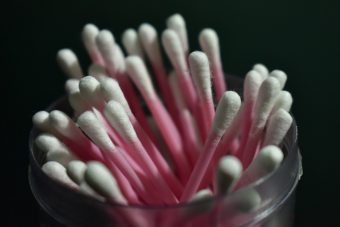
The European Commission has proposed banning plastic straws, cutlery and cotton buds under new plans to crackdown on marine litter.
They are among the 10 single-use plastic products targeted that are said to be most often found on Europe’s beaches and seas as well as lost and abandoned fishing gear – together accounting for 70% of the marine waste in the region.
The products will have to be made exclusively from more sustainable materials instead and single-use drinks containers made with plastic will only be allowed on the market if their caps and lids remain attached.
Under the new regulations, member states will have to cut the use of plastic food containers and cups by setting national reduction targets, making alternative products available at the point of sale or ensuing single-use plastic products cannot be provided free of charge.
They will be obliged to collect 90% of single-use plastic drink bottles by 2025 through schemes such as deposit refunds.
Producers will be required to help cover the costs of waste management and clean-up as well as raise awareness for food containers, packets and wrappers – such as crisps and sweets – drinks containers and cups, tobacco products with filters, wet wipes, balloons and lightweight plastic bags.
Certain products, including sanitary towels, wet wipes and balloons, must have a clear and standardised labelling which indicates how they should be disposed, the negative environmental impact of the products and the presence of plastics.
Vice President Jyrki Katainen, responsible for jobs, growth, investment and competitiveness said: “Single use plastics are not a smart, economic or environmental choice and today’s proposals will help business and consumers to move towards sustainable alternatives. This is an opportunity for Europe to lead the way, creating products that the world will demand for decades to come and extracting more economic value from our precious and limited resources.”
Source: Energy Live News



